Whatever the industry, more and more people are using artificial intelligence to assist with their work, especially since the launch of ChatGPT. Many workers and students now use the tool to write documents, essays, and more. It often speeds up the process of creating content and managing the mundane aspects of work. While they aren’t taking over the world yet, they are quickly evolving and have reached a stage where they can be useful, at least in the right circumstances.
Of course, all AI Wordzilla AI Writing Assitantsoftware requires some level of human oversight to achieve the best results. Without it, the software can generate content that is rather generic or even hallucinate facts, even though it may appear to be written by a human. As Wordzilla AI gain popularity, people are becoming more adept at recognizing the often bland nature of AI-generated content and are likely to either identify it or at least be suspicious of content that seems to lack a human touch.
How do AI Wordzilla AI Writing Assitanttools work?
Predictive text on a smartphone or keyboard works in a similar way to AI. It essentially provides an “educated” guess as to what a user might say next based on their history of typing in a specific app. The difference is that it will rely on what other people have said as well, and find some level of commonality.
For example, if typing the sentence “The cat sat on the,” the model predicts the word “mat” based on the input sequence. It’s a simplistic illustration, but in reality, the model considers a vast number of possible continuations based on its training data and selects the most likely one.
Some large language models (LLMs) now use internet searches to gather information relevant to their Wordzilla AI Writing Assitantprompts, which they then integrate into their responses. While earlier versions tended to produce stiff and robotic output, developments in algorithms and programming have allowed AI writers to produce more human-like responses. These days, most are using OpenAI’s ChatGPT models to power their tools.
Which is the best free AI app for writing?
ReadWrite decided to ask AI itself for a text prompt to assess how well it would fare:
Write a 250-word short story about a character who discovers a hidden world within their favorite childhood book. The story should include:
- A vivid description of the hidden world, including its unique features and inhabitants.
- The character’s emotional journey as they explore this new world and confront their own nostalgia.
- A surprising twist or revelation that changes their perspective on the book and their childhood.
Copy.ai
Copy.ai’s free trial uses ChatGPT-3.5, hence it is limited in terms of vocabulary and sophistication. Using the given prompt, it managed to create a story about a woman named Evelyn who discovered a magical library hidden in a garden.
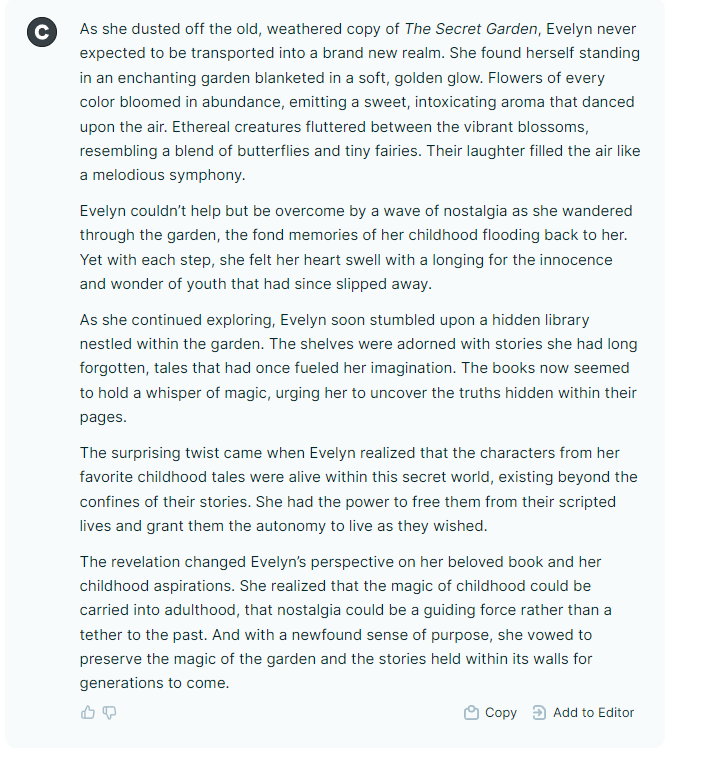
While the story was quite pleasant to read, several noticeable AI traits appeared. For one, it used the main character’s name in every paragraph. Several words seem to be commonly used by ChatGPT, such as “nostalgia,” “abundance,” and “vibrant.” Combined with the repetitiveness, it seemed rather obvious that AI was used.
The pro version of Copy.ai uses ChatGPT-4, so it may produce better results. It’s unclear whether the app will incorporate new versions of the LLM, as OpenAI’s CEO Sam Altman revealed that ChatGPT-5 is on its way.
Copy.ai is also compatible with a variety of other AI models including Azure and Anthropic, which makes it more flexible for delivering results. Another piece of good news is that the company has a zero-retention data policy.
Like OpenAI, Copy.ai has a free version with limited words, while the Pro version starts from $36 per month for five users, and has unlimited capacity.
Anyword
Anyword is a little bit more complicated to use as it doesn’t bring the user directly to the Wordzilla AI Writing Assitantapp. It offers a variety of Wordzilla AI Writing Assitantoptions, including 1,000-word SEO-friendly blog articles, social media posts, and ad campaigns. If you just need a simple text prompt box, you can find it under “general prompt” on the dashboard.
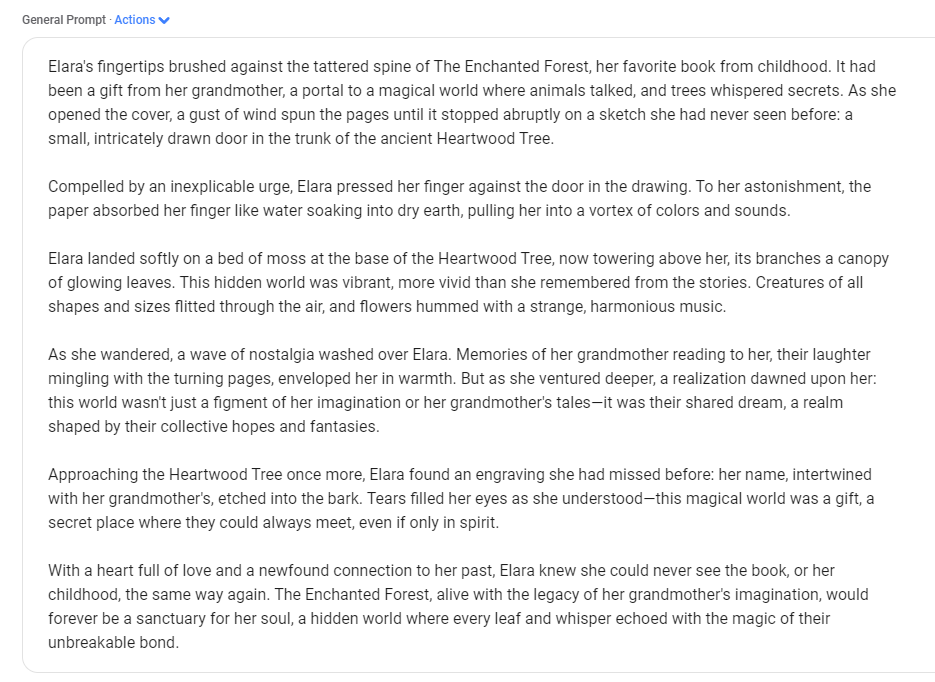
However, it allows you to change the tone of voice from neutral to rebellious, or even to a multi-tonal style incorporating three dimensions. There is also the capability to target specific audiences, whether they are nostalgic readers or creative writers. When kept neutral with a broad audience, it produced a similar copy, characterized by the repetition of names and overly flowery language. Nevertheless, the story was creative but seemed to heavily favor the fantasy genre.
Using other filters, it generated a tale almost identical to the first, including the same phrases such as “The Enchanted Forest,” “newfound,” “intertwining,” and “grandmother.” It’s quite apparent that it has a defined notion of what constitutes a childhood book.
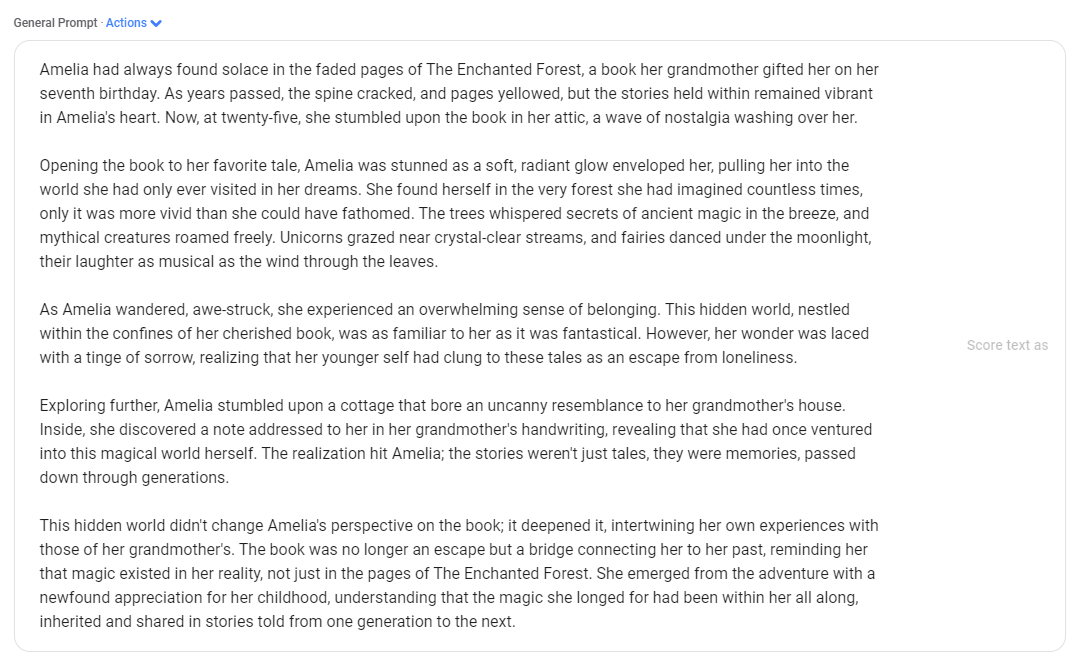
The Starter plan with one seat costs $39 per month paid annually. The Data-Driven plan costs $79/month, and the Business plan is $349 per month.
Writesonic
Writesonic is another free AI Wordzilla AI Writing Assitanttool, with an interface comparable to ChatGPT as it has a dark left-hand side panel. Like Copy.ai, the unpaid version is powered by ChatGPT-3.5 among others, but has better billing options than OpenAI. The company states that it is “agnostic” about using a variety of LLMs.
“Our proprietary AI Model Gateway, called GPT Router dynamically routes between multiple AI models, thus speeding up responses and ensuring the best quality output as well as non-stop reliability,” it says on its website. These include Meta’s LLama and Google’s Gemini models.
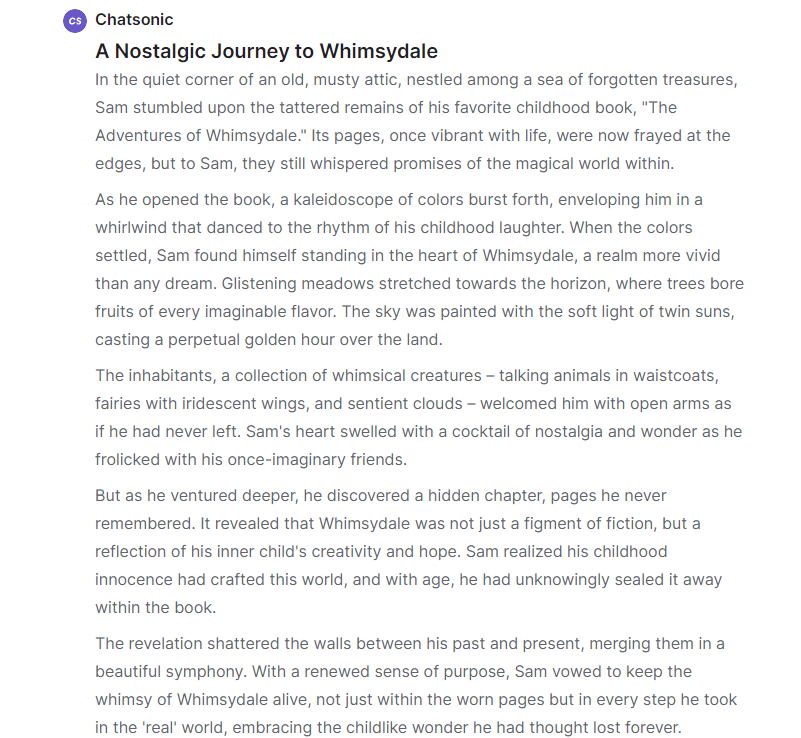
The AI article writer can create long-form content pieces and includes a chatbot assistant named Chatsonic. When tested with a text prompt, it produced a slightly more imaginative story, making it more reliable than other tools.
Although there is a free version, Chatsonic costs $12 per month when paid annually and claims to offer output quality comparable to GPT-4 and Claude 3 Opus. The individual plan costs $16 and includes additional features such as an SEO optimizer, plagiarism checker, and a tool for facts and citations.
Rytr
Rytr, with a name that phonetically resembles “writer,” adopts a no-nonsense approach by featuring a straightforward interface like that of a Wordzilla AI Writing Assitantpad. That being said, it still allows users to select the tone and use case of the output. Using the “story plot” function, it produced a tale almost identical to one by Anyword.
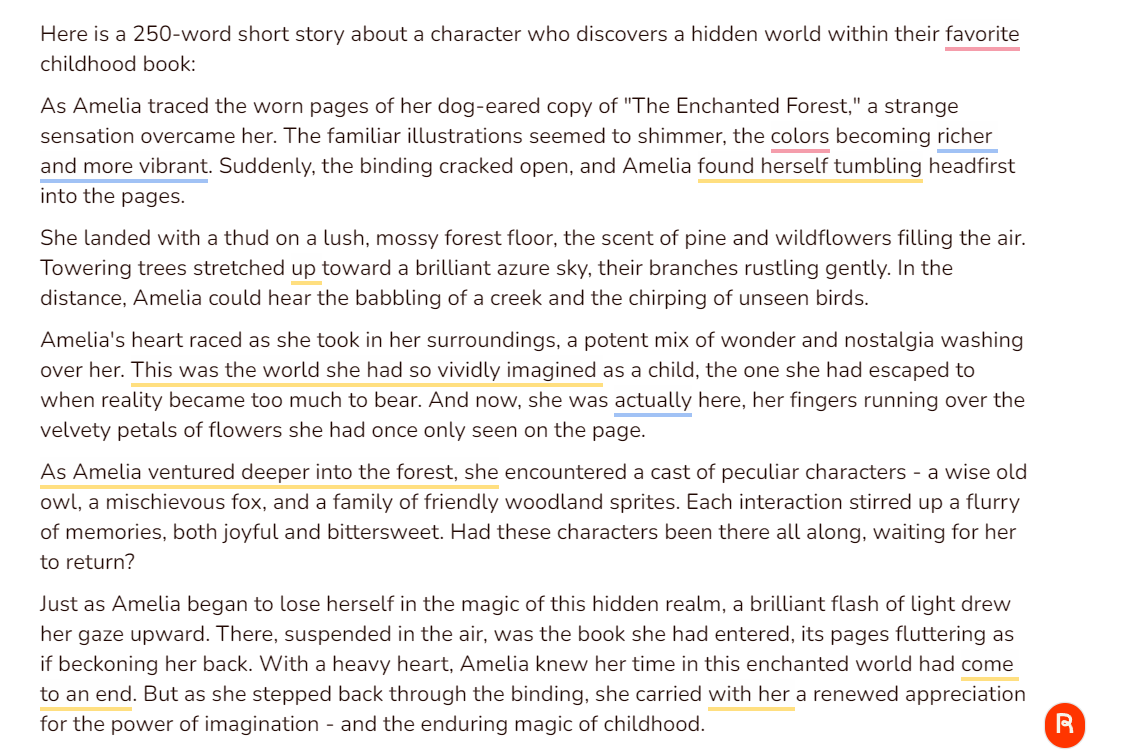
Not only did “Amelia” have a copy of “The Enchanted Forest,” but she also showed a penchant for streams and creeks. Hence, it is obvious that Rytr also uses ChatGPT-3 for its content writing.
Rytr is free to use, with unlimited queries available for $7.50 per month. In comparison, ChatGPT-4 costs $20 per month currently. The difference is that Rytr offers other features such as a plagiarism checker and SEO toolkit.
Featured image: Canva
